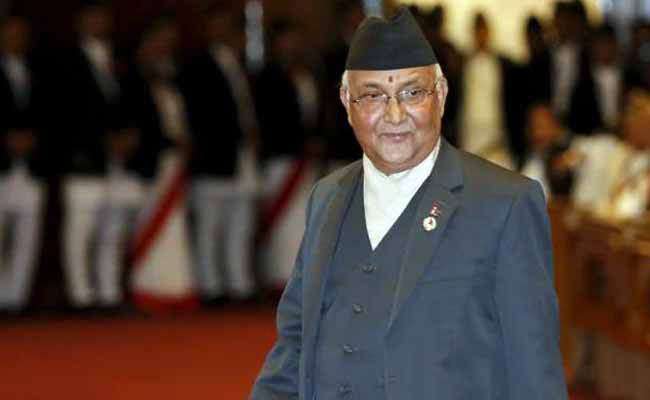Nepal’s relations with India have not been seeing the best of times. This has been so ever since the exit of King Birendra, the ‘benevolent’ king who maintained very close and brotherly relations with its southern neighbour. Birendra’s assassination in a palace intrigue and the ascension to the throne by his brother King Gyanendra, followed by political turbulence, led to the process of democracy gaining strength there. A new Constitution is in place, followed by a new government in February last after polls gave the near-total support for a rainbow coalition headed by Khadga Prasad Sharma Oli. It is with this high public approval ratings and increased clout that Prime Minister Oli visited India in the last three days and held bilateral discussions. Curiously, nothing much seems to have come out of this visit, evident from the fact that no bilateral agreement has been signed.
It is well-known that Indian Prime Minister Narendra Modi and the RSS had reservations about the way a secular Constitution was being framed by Nepal. In the past, Nepal had been a Hindoo nation. Oli’s special interest to promote ties with China, his criticism of India in sharp terms over what he sees as “interference” in Nepal’s affairs by New Delhi were not viewed favourably by India. The Madhesi stir in the plains close to the Indian border in 2015 in protest against alleged step-motherly treatment to Indian origin people in Nepal, was one pretext which the Modi government utilised to throttle the bulk of the Nepalese population. Notable also is the economic blockade by India to support the Madhesis, cutting off essentials from India to Nepal at the height of the stir, which troubled Nepal in harsh ways. The April 2015 earthquake was also a period when Indian outreach there for help was perceived in critical terms due to the way segments of Indian volunteers and media behaved.
Worse, Oli believed that he was overthrown from power in 2016 with some diplomatic manoeuvring by India.
It is against this background that Oli chose to visit India a month after he took over office this time. It shows Oli understands the importance of keeping up his country’s relations with India, but he also appears to be firm that Nepal’s growing association with China is the need of the hour for the land-locked Himalayan nation. China is cleverly cultivating Nepal through steady strengthening of bilateral relations.
It has roped Nepal in to the One Belt One Road (OBOR) project even as India has refused to be part of it. New dams are proposed to be built with Chinese help in Nepal, a land that has an abundance of waterfalls, while India was caught napping. India says that, in such an event, it would not buy power from such projects – which are essentially meant to run on commercial basis for sale of electricity.
Niceties do not mean much in the relations between Nepal and India. Signals emanating from the bilateral talks in Delhi this past weekend are that Nepal might no more be a dependable ally. The big win for Oli’s coalition in the last polls showed that people are firmly behind his dispensation. Not only that, Oli stood against India when the Modi government, with some unreal perceptions, choked essential supplies such as petroleum, medicines and food stuff to the Himalayan country. That was the beginning of the souring of relations between the two nations which were the greatest of friends till recent times. A leftist for life, Oli has been forced to look for other allies after people in Nepal were left high and dry and turned anti India. Keeping his people’s sentiments in mind, Oli took his country closer to China for sheer logistical and economic benefits. Geopolitical realities are such that no nation in the region can afford to ignore the Chinese olive branches. Yet, Nepal had withstood China and favoured India for far too long. The change in attitude occurred only after the Nepalese people perceived the ill intentions and big brotherly behaviour of India. Similarly, Maldives has developed cold feet over its ties with India and Pakistan is helping it edge closer to China. Sri Lanka has been in the Chinese orbit for long; though there are problems of late between the two nations over hefty loans China had offered to the island country. Myanmar already has close ties with China. Even Bangladesh is being wooed by China with economic support. The China-Pakistan axis is a real threat to weak-kneed India.
Under the circumstances, India is increasingly getting isolated from others in the region. A natural tendency on the part of nations as also individuals is to ally with the strong entities in a neighbourhood. China today has an economy five times the size of India; and it has grown by leaps and bounds in the past two decades in military might too. For India to thrive and have friends, it is imperative that it strengthens its economic and military clout in much faster ways. Not only that, the Indian foreign policy has become a joke among all neighbouring nations. Bereft of any proper guidelines and with the present Prime minister Modi believing that he, as a solitary operator, can browbeat every other nation because of his towering personality, has cost India dearly. Nepal is just a warning signal about this situation.
Nepal’s Oli
